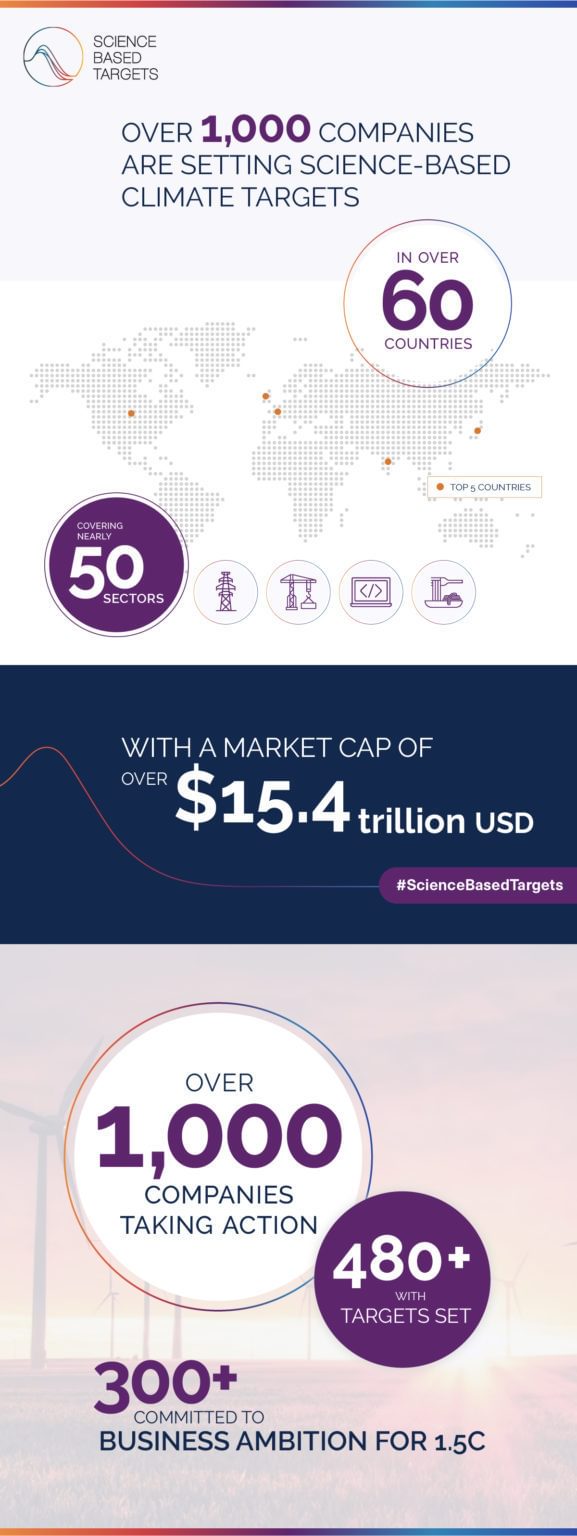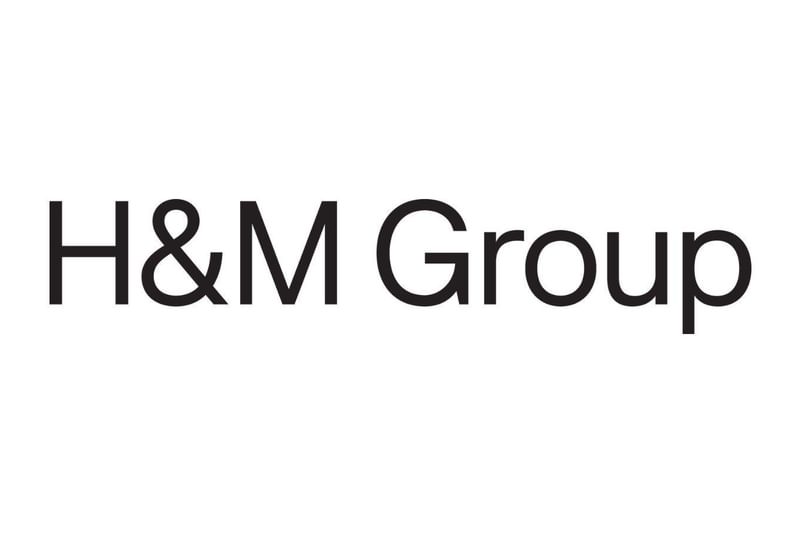
The new normal: 1,000 companies are now setting science-based climate targets
Oct 8th 2020
Nearly five years after the Paris Agreement, and amidst the major disruptions and urgent challenges of COVID-19, we’ve welcomed the 1,000th company to the Science Based Targets initiative (SBTi).
By the Science Based Targets initiative Steering Committee: Alberto Carrillo Pineda (CDP), Heidi Huusko (UNGC), Cynthia Cummis (WRI), Alexander Farsan (WWF)
Nearly five years after the Paris Agreement, and amidst the major disruptions and urgent challenges of COVID-19, we’ve welcomed the 1,000th company to the Science Based Targets initiative (SBTi).
The stark reality of the global pandemic has reinforced the need for resilience in business operations and supply chains in the face of crises. With dangerous climate change already threatening livelihoods, economies and societies, business as usual is changing – and climate action is at the forefront.
A major milestone for corporate climate action – and momentum is growing
When the SBTi launched in 2015, we set out to mobilize the private sector to take the lead on urgent climate action, and to make science-based target setting standard business practice. We aimed to enlist 100 companies by COP 21 in December 2015, and reach 250 no later than 2020.
Today, 1,009 companies, spanning 60 countries and nearly 50 sectors, and with a combined market capitalisation of over $15.4 trillion USD — including one-fifth of the Global Fortune 500 — are working with the SBTi to reduce their emissions at the pace and scale necessary.
The transformation has begun. Science-based target setting is the new normal.
The number of companies working with the SBTi continues to soar, with recent joiners including major global household names such as Facebook, Amazon and Ford. Despite the disruption and uncertainty of COVID-19, 2020 has seen a record rate in the initiative’s history of companies joining: an average of one per day.
Momentum for science-based targets is reaching a critical mass* across a range of industries, including apparel, healthcare, food and beverage, hospitality, paper and forests products, information technology, real estate and biotechnology.
These corporate leaders are proving that ambitious science-based climate action goes hand-in-hand with business success. And as they double down on their commitments, CEOs are calling for governments to match their climate ambition and build back better from COVID-19.
The race to zero is on, and climate leaders are raising the bar
The race is now on to limit global warming to 1.5°C and avoid the most catastrophic impacts of climate change. To achieve this, we must halve emissions by 2030 and reach net-zero by 2050.
Business leaders are rising to this challenge. 295 have already signed up to the highest level of climate action through our Business Ambition for 1.5°C campaign. Rolls-Royce, CP Group, Bayer and LafargeHolcim are among those committed to set targets in line with limiting warming to 1.5°C and reaching net-zero emissions by no later than 2050.
To ensure the path to net-zero is grounded in science, the SBTi will soon release the first global standard for credible, corporate science-based net-zero targets, building on our latest report.
And to create greater transparency and accountability, we are designing a new robust framework to track companies’ progress against their targets.
Nearly 200 companies have already set 1.5°C-aligned targets – verified by the SBTi – for their direct operations. These include the world’s leading food packaging and processing company, Tetra Pak, which is one of the latest companies to upgrade its existing science-based targets (originally set in 2017) to the SBTi’s highest level of ambition.
“Tetra Pak was the first company in the food packaging industry to have its climate impact reduction targets approved by the SBTi in 2017. We’re proud to announce these have now been upgraded in line with 1.5°C trajectory,” says Markus Pfanner, VP Sustainability, Tetra Pak.
“We see science-based targets as guiding lights to provide companies with a clearly defined pathway to future-proof growth, by specifying how much and how quickly they need to reduce their greenhouse gas emissions. In addition, science-based targets help businesses to communicate transparently and openly on how they contribute to a carbon-neutral economy.”
Five years of momentum: the foundation for the new decade of ambition
2020 marks the five-year anniversary of both the SBTi and the Paris Agreement – and the start of a new critical decade of ambition. With over 1,000 business leaders proving they are ready to step up, momentum must continue to grow.
Businesses from all sectors and regions have a vital role to play in the race to zero. And with our new framework for the finance sector, we can unlock the system-wide change needed.
But to fully decarbonize our economy, and build a truly sustainable and resilient future, all actors in the global economy must work together.
We need a race to the top in which companies empower their peers, suppliers and customers to follow suit and drive policymakers to match their ambition. While COP 26 has been postponed, the need for bold government action has not. Widespread and ambitious science-based target setting will give governments the clarity and confidence to reimagine and invest in a better future – our only future.
We need a world where setting and achieving science-based targets is fully embedded in all sectors — and this extends to targets for all the Earth’s systems and natural resources that sustain us.
The next steps are clear. Every business must join the pioneering companies taking urgent action. Set a target today.

*Based on the “Diffusion of Innovation Theory”, we define a sector as having reached a ‘critical mass’ when 20% of companies in the sector are committed to and/or have set science-based targets.
Latest News
View News


